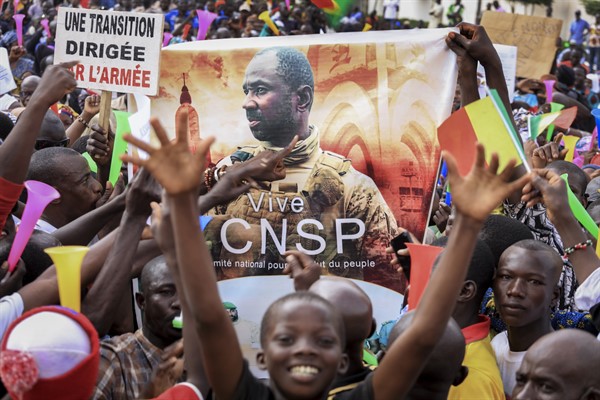In May 2021, Mali suffered its second coup in the space of a year, both of which were perpetrated by the same group of colonels. While the first coup, in August 2020, followed a recognizable script of quickly standing up a civilian-led transitional government with the task of guiding the country to democratic elections, the second has upended that “business-as-usual” approach to post-coup transitions. As such, for Mali and for West African democracy in general, it represents a real turning point, revealing the coup-makers’ combination of shrewdness and ambition—a combination that is already being replicated by military juntas that have similarly seized power in Guinea and Burkina Faso.
When Col. Assimi Goita and his colleagues first took power in August 2020, the scenario seemed familiar and the reactions of external powers almost routine. Yet again, a group of uniformed men was on television in a West African state, reading a decree to install themselves in power and awarding themselves a heroic title—in this case, the National Committee for the Salvation of the People. And, yet again, there was no serious push from Paris, Washington or the regional head of states’ club called the Economic Community of West African States, or ECOWAS, to reinstate the ousted president.
In Mali’s case, after seven years in office, President Ibrahim Boubacar Keita was widely accused of corruption and incompetence. Neither he nor French forces deployed to Mali for a decade had reversed the spread of violence by jihadists, community-based militias and the country’s own security forces. With barely concealed resignation, ECOWAS—backed by France, the United States and others—pushed the new Malian junta to create an 18-month transition plan.

